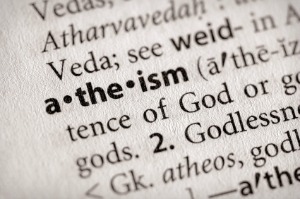
One of America’s most noted philosophers is Thomas Nagel of New York University. Nagel is an atheist, but lately he has set a very large cat among his fellow atheists by dissenting from their reductionist, materialist doctrine which, among other things, denies the existence of free will.
He did it with his latest book, a slim volume called ‘Mind and Cosmos: Why the materialist neo-Darwinian conception of nature is almost false’.
The book is basically a tank parked on the lawn of other atheists such as Richard Dawkins and Daniel Dennett. To put it mildly, these members of the Atheist Magisterium have not taken kindly to his action.
Indeed, the reaction has been so strong that it prompted The Weekly Standard in the United States to run a cover story on the controversy entitled ‘The Heretic’ which is well worth a read.
In Nagel’s opinion, materialism simply cannot explain the universe as it is. He says that the attempt to reduce all processes, including consciousness to their material causes only (in the case of consciousness, chemical reactions), “is incapable of providing an adequate account, either constitutive or historical, of our universe”.
The insistence that consciousness is simply the result of chemical reactions in our brains leads to the denial that free will is real.
As the co-discoverer of the double helix, Francis Crick, so famously put it: “‘You,’ your joys and your sorrows, your memories and your ambitions, your sense of personal identity and free will, are in fact no more than the behavior of a vast assembly of nerve cells and their associated molecules. Who you are is nothing but a pack of neurons.”
In a similar vein, Daniel Dennett says humans are merely ‘moist robots’.
Richard Dawkins does not believe in free will either. I put this point to him when I debated him on RTE a few years ago and he tried to avoid the issue completely.
This is probably because Dawkins knows that the general public instinctively believe in free will and that they don’t regard themselves merely as ‘moist robots’.
Indeed, if there is no free will, there is no real moral accountability either (is a robot responsible for its actions?). But in that case, atheist condemnations of religion as immoral make no sense whatsoever.
In any event, Thomas Nagel has stepped out from the ranks of his fellow atheists and told them that any account of reality which can’t properly explain consciousness can’t be true.
As mentioned, Nagel is an atheist so clearly he doesn’t believe that theism is an adequate alternative explanation either. In fact, he thinks we may never be fully able to explain why the universe is as it is.
But the dispute between Nagel and his fellow atheists is interesting and the severity of their attacks on his speaks of their dogmatism and profound dislike of criticism.
















